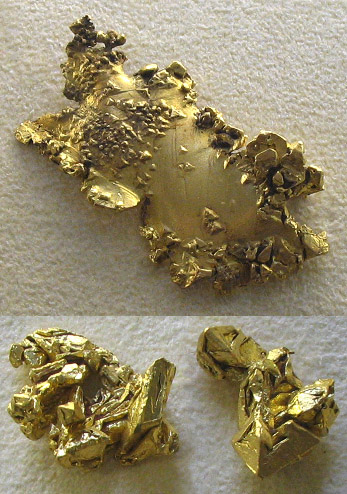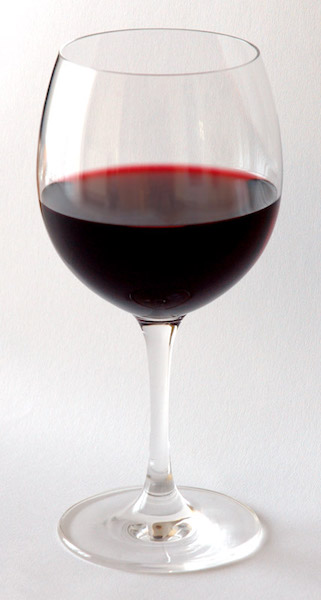Exeter Riddle 11
MEGANCAVELL
Date: Mon 12 Aug 2013Matching Commentaries: Commentary for Exeter Riddle 11
Hrægl is min hasofag, hyrste beorhte,
reade ond scire on reafe minum.
Ic dysge dwelle ond dole hwette
unrædsiþas, oþrum styre
5 nyttre fore. Ic þæs nowiht wat
þæt heo swa gemædde, mode bestolene,
dæde gedwolene, deoraþ mine
won wisan gehwam. Wa him þæs þeawes,
siþþan heah bringað horda deorast,
10 gif hi unrædes ær ne geswicaþ.
My garment is stained dark, my ornaments bright,
red and shining on my robe.
I delude the fool and urge the erring one
on reckless tracks; others I steer
5 from suitable ones. I do not know why
they, thus mad, robbed of reason,
deluded in deed, praise my
shadowy way to everyone. Woe to them for that habit,
when they bring the most beloved of hoards on high,
10 if they do not first retreat from recklessness.
Notes:
This riddle appears on folio 103v of The Exeter Book.
The above Old English text is based on this edition: Elliott van Kirk Dobbie and George Philip Krapp, eds, The Exeter Book, Anglo-Saxon Poetic Records 3 (New York: Columbia University Press, 1936), page 186.
Note that this edition numbers the text Riddle 9: Craig Williamson, ed., The Old English Riddles of the Exeter Book (Chapel Hill: University of North Carolina Press, 1977), pages 73-4.
Tags: anglo saxon exeter book riddles old english solutions riddle 11


Commentary for Exeter Riddle 10
MATTHIASAMMON
Date: Thu 08 Aug 2013Matching Riddle: Exeter Riddle 10
While the solutions that have been proposed for this riddle range from "alchemy" and "baptism" to "bubble" and "water lily," the most commonly accepted solution is "barnacle goose" (Old English byrnete). This puts this riddle in line with the preceding bird riddles – once again the bird speaks of itself in the first person and tells the audience of its particular identifying characteristic: in this case, the genesis of the bird from wood and water. It was commonly believed in medieval times that barnacle geese were somehow grown from the barnacle shells that cling to driftwood floating in the sea. In fact, the word "barnacle" stems from the name for the bird rather than the other way around! And while this folk belief in the origin of the barnacle goose pops up a lot in the later Middle Ages, this riddle is in fact the earliest evidence that people thought this. Dieter Bitterli, whose work on the bird riddles has already been mentioned in some of the other commentaries, suggests that this myth may have originated in Britain where the arctic barnacle geese spend the winter and was handed down over generations to the authors of later medieval zoology text books.
The process of the birth of the barnacle goose is somewhat obscurely referred to in lines 4b-5 (with the bird’s body "touching" a floating piece of wood) and in the first half-line, which might allude to the bird’s hanging from the piece of wood by its beak, thus obtaining nourishment. Another characteristic is the "black garment" with "white trappings" which the speaker describes (see below for visual proof of this, though there are probably many other creatures to whom this might apply!). And barnacle geese are indeed "carried widely over the seal’s bath" – they breed on islands in the North Atlantic and come south to winter in Great Britain and the Netherlands (nothing like a balmy British winter to take the chill off…).
A goose! Photo (by Andrey) from Wikimedia Commons (licence: CC BY 2.0).
One interesting expression in this riddle is the feorh cwico of l. 6. I’ve translated this as "living spirit," but Leslie Lockett discusses feorh as meaning something more like "life-force," something that has to enter a thing to give it life – even one born from wood and water (page 44)! If you look back at Riddle 9, the cuckoo likewise explains that it did not have feorh when it was in the egg, so it’s something that comes with being born. And like the cuckoo, which was covered in a protective garment, the barnacle goose is protected by water which allows it to grow and become lifgende.
For those of you who might now be worrying that early medieval folks were a bit obsessed by birds, stay tuned for the next post’s change in direction.
References and Suggested Reading:
Lockett, Leslie. Anglo-Saxon Psychologies in the Vernacular and Latin Traditions. Toronto: University of Toronto Press, 2011.
Tags: anglo saxon exeter book riddles old english solutions riddle 10
Related Posts:
Commentary for Exeter Riddle 10